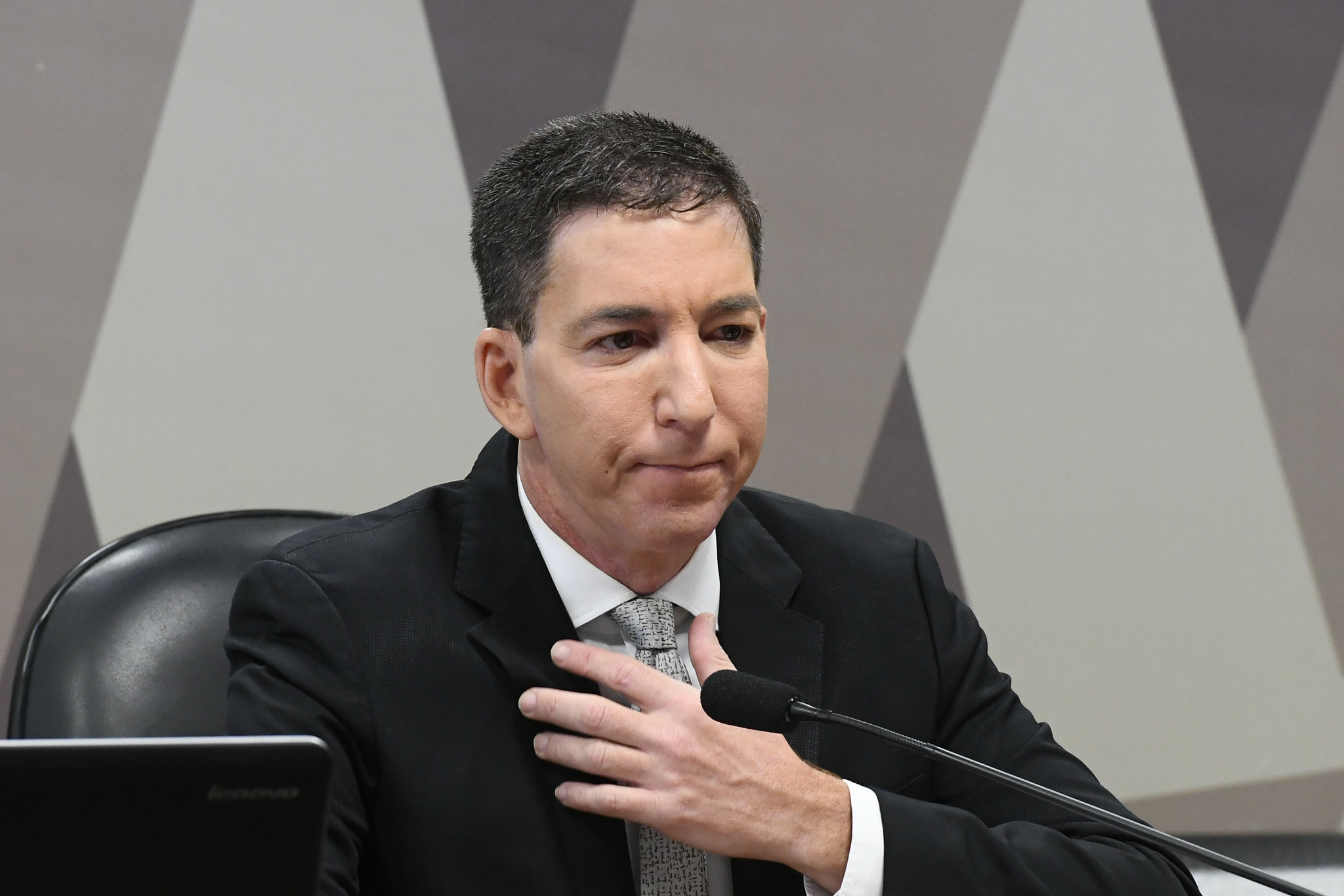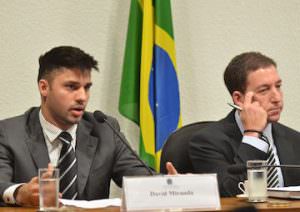Glenn Greenwald Sounds the Alarm on Bolsonaro’s Brazil
In an op-ed for The New York Times, The Intercept co-founder decries the Brazilian government's encouragement of violence against the press. The Intercept co-founder Glenn Greenwald. (Senado Federal / Flickr)
The Intercept co-founder Glenn Greenwald. (Senado Federal / Flickr)
As is so often the case with the commander in chief, it wasn’t his words so much as what they might portend. On Monday, while feting Conan the military dog for his alleged role in the raid on Islamic State leader Abu Bakr al-Baghdadi—a ghastly, jingoistic celebration in its own right—Donald Trump joked that he might sic the canine on a White House reporter. “It’s trained that if you might open your mouths, you will be attacked,” he quipped. “You ought to be very, very careful.”
For the time being, these threats remain idle (although the U.S. did crack the list of the most dangerous countries in the world for journalists in 2018). But in Brazil, under far-right President Jair Bolsonaro, they’re being carried out. Writing in The New York Times this week, Glenn Greenwald argues that a recent incident “illustrates how press freedoms and the democratic order in Brazil are endangered—not just with words, but violence—by this authoritarian movement that now wields power in the world’s fifth-most-populous country.”
Earlier this month, The Intercept co-founder appeared on the Brazilian radio show “Pânico” with conservative columnist-cum-Bolsonaro-loyalist Augusto Nunes. According to Greenwald, Nunes had responded to a series of Intercept exposés on Bolsonaro and his administration by asking a federal judge to investigate him and his partner, Socialism and Liberty Party Congressman David Miranda, for parental neglect. Because both are working, Nunes claimed, they are unable to care for their two children.
“[That] attack on our family did not come out of nowhere,” Greenwald observes. “President Bolsonaro has long featured anti-L.G.B.T. animus as a central weapon in his political arsenal and has repeatedly used anti-gay attacks against me. He and his allies have attacked other journalists and activists who oppose him.”
When Greenwald confronted Nunes about the cowardice of his accusations, Nunes took a swing at him live on air. The fight was quickly broken up, but the message was clear: Criticism of the president and his media enablers will be met with force. The Brazilian government confirmed as much when the president’s guru and spiritual adviser, Olavo de Carvalho, as well as two of his politician sons, Carlos and Eduardo Bolsonaro, openly cheered Nunes’ conduct—the latter calling it a “legitimate defense of his honor.”
“The Bolsonaro movement, like most authoritarian factions, favors intimidation and violence over civic discourse — against their adversaries in general, but especially against journalists they regard as obstacles,” Greenwald continues. “Predictably, the climate for journalists since the 2018 presidential election has become far more dangerous than before.”
Greenwald notes that such prominent journalists as Patricia Campos Mello, who writes for one of Brazil’s oldest newspapers, Folha de São Paulo, have been “targeted with credible threats of violence,” while Globo’s Miriam Leitão had to a cancel a public appearance after the president targeted her personally. Following a Globo investigation exposing his family’s ties to the assassination of City Councilwoman Marielle Franco, Bolsonaro has followed through on his promise to suspend all public funding of the newspaper. Greenwald reveals that he himself cannot leave his home “without a team of armed security guards and an armored vehicle.”
“As long as there is a free press, we are able to not just reveal corruption and wrongdoing by the nation’s most powerful actors, but also to ensure that history is not rewritten, that the horrors of Brazil’s two decades of military regime are not whitewashed or forgotten,” he concludes. “That’s precisely why members of the Bolsonaro movement target us: They know that transparency and free discourse are the primary obstacles to returning Brazil back to its darkest days. The more they show their true face, the more resistance they have encountered. The job of journalists, the purpose of a free press, is to ensure that this truth remains clear.”
Read Greenwald’s op-ed in its entirety at The New York Times.
Your support matters…Independent journalism is under threat and overshadowed by heavily funded mainstream media.
You can help level the playing field. Become a member.
Your tax-deductible contribution keeps us digging beneath the headlines to give you thought-provoking, investigative reporting and analysis that unearths what's really happening- without compromise.
Give today to support our courageous, independent journalists.








You need to be a supporter to comment.
There are currently no responses to this article.
Be the first to respond.